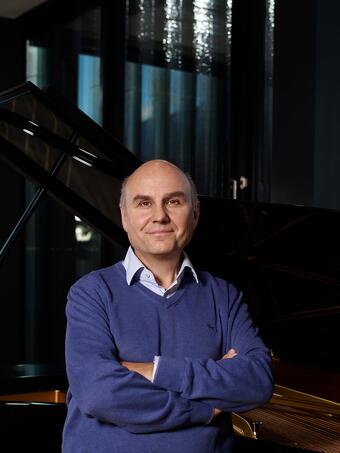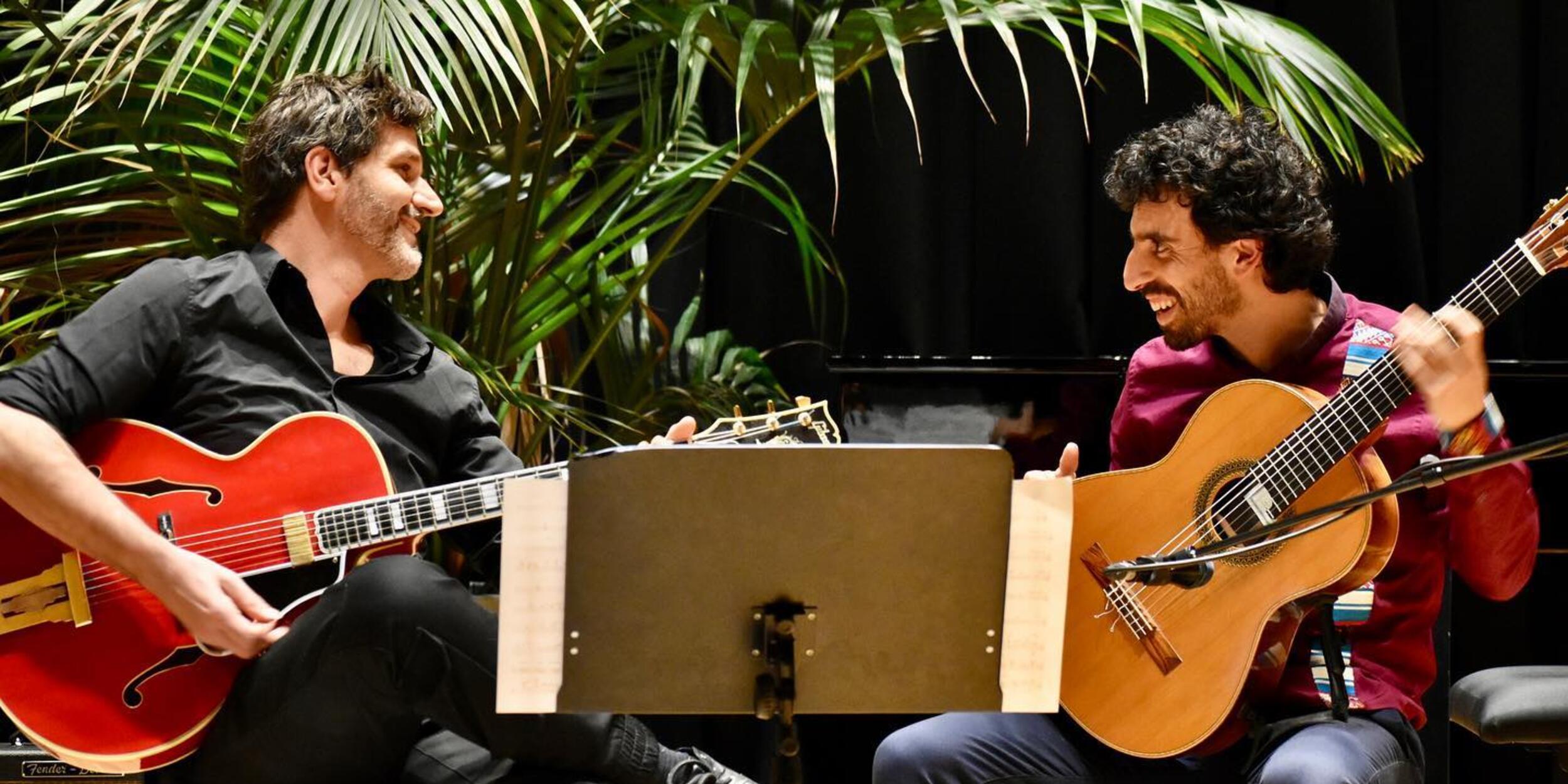
Teacher of Keyboard Skills
+++ Registration for the entrance examination for teacher training (Art Education and Design:Technology.Textile) still possible until 10th June 2025 - all further information on the course pages! +++

The bachelor's degree programme in music education provides basic training across the broad spectrum of subjects and skills required for classroom music teaching. In addition to completing courses in didactics, pedagogy and education sciences, students will receive an all-round musical education in practical musicianship, music theory and musicology. They will also complete practical teaching placements as they prepare to enter the teaching profession; this programme qualifies students to teach in grades 5-8 of the Austrian education system and to embark upon the MA programme required to become a fully qualified secondary school teacher.
Length of course
8 semesters / 240 ECTS-AP
Language
German
Application period
1.2.–28.3.2025
Admission examinations
Summer semester of each year
to the dates
The teacher training programme for secondary education consists of a Bachelor's and a Master's programme and trains students to become teachers in their chosen subjects.
The Bachelor's degree programme in Secondary Education is designed to be completed within 8 semesters. Two teaching subjects must be chosen, in addition to which students are required to complete free elective subjects, a general grounding in educational science, and integrated teaching placements. The subject Music Education can be combined with any other teaching subject.
Students receive individual tuition from first-class teachers on their chosen instruments and can develop both artistically and in terms of music education. Alongside artistic and music theory training, a focus is placed on the subject of music in school from the very beginning. The courses in didactics introduce methods and concepts for teaching music and also cover such areas as listening education, digital media and practical music making in the classroom.
This degree course is orientated around current developments and performance practice in the arts, as well as the latest, most up-to-date research in the academic disciplines involved. It refers to the curricula of secondary schools and the general and holistic educational goals contained therein.
The teacher training programme at secondary level is carried out in cooperation with the following partner institutions (Western Region Partnership):
Applicants should ...
The aim of the Bachelor's degree programme is to prepare students for a career in secondary school teaching. A full teaching qualification can be obtained by consecutive enrolment in the corresponding Master's programme. However, the Bachelor's programme alone also opens up further professional fields, such as extracurricular youth education, adult education, cultural and media work, etc.
The study programme should also contribute to students' personality development and the development of social competences. After completing the BA teaching degree in the subject Music Education, students should:
The breadth of the curriculum should enable future teachers to make music accessible to a wide ranger of learners in both production and reception. The degree programme qualifies students to teach at:
Students have the choice of the following instruments as their artistic major:
Alternatively, one of the following artistic majors can be chosen:
In order to be admitted to the Bachelor's programme, various certificates and examinations are required:
Within the framework of the Bachelor's degree programme Music Education, piano and voice as well as an artistic major (see above) must be studied. All instruments offered at the location as well as voice (classical), voice (jazz/pop) and conducting can be chosen as artistic majors. If piano or voice is chosen as an artistic major, a third instrument is not required. Candidates must indicate their choice of artistic major when registering for the entrance examination.
The teaching subject Music Education is to be combined with a second subject. The combination with the teaching subject Instrumental Music Education at the Mozarteum University (Innsbruck campus) is possible; for admission to the Instrumental Music Education programme, a separate audition proving artistic aptitude in two instruments must be passed.
The General Admissions Procedure for all teaching degress (regardless of subject) consists of several steps:
Please check the Western Region Partnership website for exact dates and procedures.
Registration for the entrance examination takes place via the application portal Muvac - information see 'Registration for the entrance examination'.
Link to the registration deadlines
Link to the examination dates
Registration may only be made for one location, either Central Region (for Salzburg and Linz) or Western Region (for Innsbruck). Multiple registrations at different locations are not permitted and will be cancelled.
When registering in the Central Region, candidates must specify their preferred location (Salzburg or Linz) in the application in the above-mentioned registration portal.
Documents required for online registration
Form of the documents
The artistic entrance examination
The entrance examination
Partial examinations must be taken in the following areas:
The examination requirements are regulated in the guidelines; information on the German language certificates accepted can be found HERE.
Material to prepare for the Music Theory and Aural Skills examination can be found HERE.
For reasons of equal treatment and comparability, all applicants must pass all parts of the entrance examination. Exceptions are regulated in the guidelines.
You can find more information about starting your studies here: